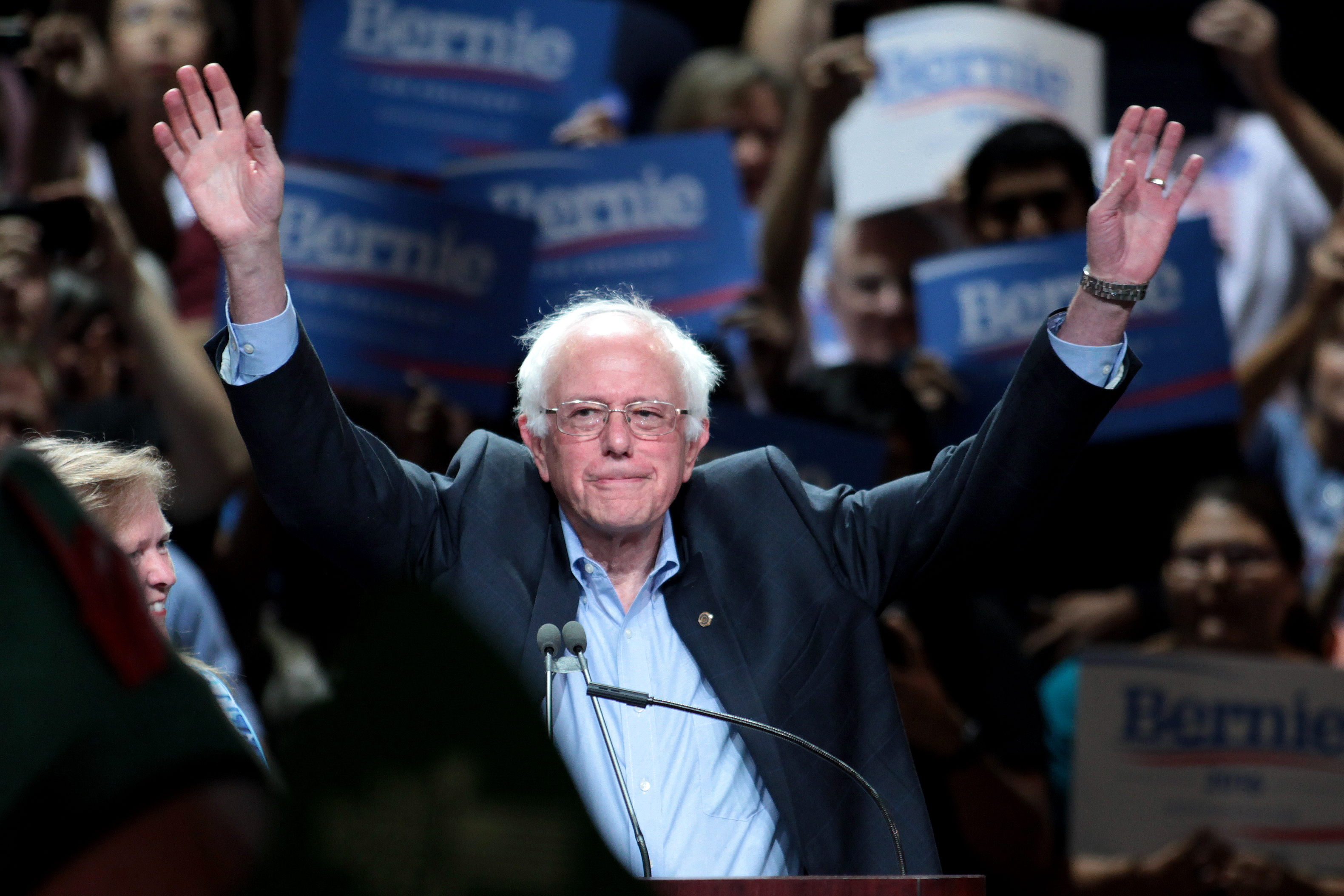
Photo credit: Gage Skidmore
ON JULY 12, Bernie Sanders endorsed Hillary Clinton as the Democratic presidential candidate. The endorsement provoked outrage in Sanders supporters, many of whom vowed to write in the candidate’s name at the polls in November. But Bernie’s changes to the Democratic Party platform make write-in votes insulting to his campaign.
In order to win Sanders’ public endorsement of their candidate, Clinton supporters within the DNC had to make changes to the party’s platform. These included multiple environmental protections, Wall Street banking breakups, a $15 federal minimum wage, and a path toward marijuana legalization.
Sanders and Clinton compromised on a plan for free college tuition for children whose parents make less than $125,000 per year, which would make earning a degree affordable for 83 percent of high-school grads across the country. It’s a step down from Sanders’ call for an end to out-of-pocket tuition costs for all students, but lifting the financial burden of college off the shoulders of more than four-fifths of U.S. children is a clear victory for Sanders and the Far-Left.
Furthermore, although the Platform Committee voted down Sanders’ opposition to the Trans-Pacific Partnership (TPP) trade deal, Clinton spoke out against it in a speech delivered immediately after Sanders’ endorsement. The DNC reportedly did not want to withdraw public support for the TPP during Obama’s tenure, given that it is a “premier issue” for the president.
Even with its support for the TPP, the 2016 Democratic Party platform has been hailed as the “most progressive … in party history.” Those accolades are the result of hard work from Sanders’ campaign staff, the outpouring of support from voters, and the political revolution that the Vermont senator himself began. In short, if you like the Left’s position on the issues this year, you have Bernie Sanders to thank for it. No one is disputing that.
However, at this point in the election cycle, Sanders supporters lack direction. Some took to Twitter to blast the senator as #SelloutSanders, while others continue to hold out for a convention upset. Many will support Clinton because she is the Democratic nominee. Others have declared their intention to fall behind Trump, having been convinced that Clinton is unfit for office. Still more supporters float ideas of writing in Sanders’ name, voting for Green Party candidate Jill Stein, or avoiding the polls altogether.
Those who voted for me will not support Trump who has made bigotry and divisiveness the cornerstone of his campaign. #RNCwithBernie
— Bernie Sanders (@BernieSanders) July 22, 2016
It’s important to realize that Sanders has never said he would not vote for Clinton if she were to win the nomination. Even before he formally endorsed the former Secretary of State, Sanders said he would “certainly support” Clinton’s bid for the presidency. As far back as July 2015, Sanders declared he would not run as a third-party candidate if he lost the Democratic nod. In an interview with the U.S. Hispanic Chamber of Commerce, Sanders said: “I made the promise that I would not and I will keep that promise. And the reason for that is I do not want to be responsible for electing some right-wing Republican to be president of the United States.”
The admonition to “be like Bernie” arose after Sanders’ more privileged and vocal supporters — collectively known as the Berniebros — began spouting misogynistic rhetoric at Clinton, her campaign staff, and her voters. It was a method of self-policing, an attempt to prevent the fervor of individuals within the movement from damaging the reputation of its leader. Some have tried to use the phrase in order to encourage left-wing unity in the 2016 elections, but many of Sanders’ supporters seem impervious to its logic.
That’s unfortunate, because to vote for Donald Trump or a third-party candidate — Bernie Sanders included — is to act in direct opposition to everything the Vermont senator stands for. It insults Sanders and his policy staff, who worked tirelessly for two days in Orlando to hash out the 2016 Democratic Party platform. It downplays every victory the Sanders campaign has won, including the radical reversal of the mainstream Left toward New Deal politics.
If past campaigns are any indication, the vast majority of Sanders voters will come around to support Clinton at the polls in November. But the fact remains that pro-Sanders social media hubs are populated with vocal opponents of Clinton, who encourage others to keep her out of the White House at any cost, despite Sanders’ worries about a Trump presidency. Although these folks might believe strongly in “surprising” Sanders — and disrupting the system — with a successful write-in campaign in November, that’s the exact opposite of what the far-left senator wants.
Bernie Sanders has made it clear that he plans to vote Clinton. He has refused to mount his own third-party campaign, simply because he does not want to see progressives divided in their choice of a candidate. Sanders has worked hard to bring his ideals to the 2016 Democratic Party platform. Casting an off-ticket ballot in his name insults both the man and the movement.
















